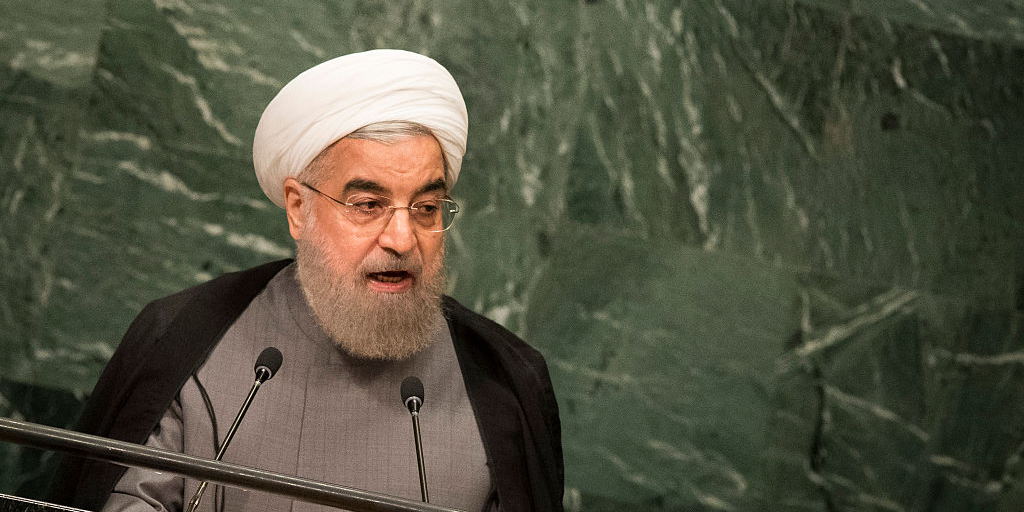- The European signatories fighting to save the Iran nuclear deal in the wake of America’s unilateral withdrawal last year expressed concern in response to repeated violations of the 2015 agreement by Tehran this past week.
- The European Union, the United Kingdom, France, and Germany have condemned Iran’s latest actions and urged the country to reverse course.
- Iran is threatening progressive violations to force those countries determined to save the deal to either offer protection from US sanctions or a new agreement.
- Israel is calling on the European signatories to punish Iran with “harsh sanctions” while the US sticks to its “maximum pressure” strategy.
- Visit Business Insider’s homepage for more stories.
Europe is demanding Iran to reverse course as the latter violates the 2015 nuclear deal, an agreement that offered economic opportunities in exchange for an end to Iran’s nuclear weapons program.
Facing crippling US sanctions reimposed after the US unilaterally withdrew from the seven-party Joint Comprehensive Plan of Action (JCPOA), an accord commonly known as the Iran nuclear deal, in May of last year, Iran has begun progressively violating the agreement, putting increased pressure on European signatories eager to save the deal.
Iran announced its second violation in a week on Sunday. Following Monday’s announcement that Iran had increased the size of its stockpile of low-enriched uranium beyond the 300 kg limit set by the JCPOA, Tehran announced Sunday that it has increased uranium enrichment beyond the 3.67% purity limit, an alarming move toward the weapons-grade uranium.
Even with the increase, Iran remains a long way from the 90% required for a nuclear bomb.
Iran stressed that these moves are necessary to combat "US economic terrorism" but are "reversible" should the European countries party to the JCPOA comply with the terms of the deal.
European signatories have expressed concern over Iran's latest moves, suspected attempts to force Europe's hand into either offering protection from US sanctions or a new agreement.
"We are extremely concerned at Iran's announcement that it has started uranium enrichment above the limit of 3.67%," Maja Kocijancic, spokeswoman for EU foreign policy chief Federica Mogherini, said in a statement, according to Reuters. "We strongly urge Iran to stop and reverse all activities inconsistent with its commitments."
The United Kingdom issued a similar statement. "Iran has broken the terms of the JCPOA," the statement read. "While the UK remains fully committed to the deal, Iran must immediately stop and reverse all activities inconsistent with its obligations."
Likewise, French President Emmanuel Macron condemned Iran's latest moves as a "violation" of the 2105 agreement, and Germany strongly urged "Iran to stop and reverse all activities inconsistent with its commitments."
The four European JCPOA participants are discussing their next course of action.
Israeli Prime Minister Benjamin Netanyahu argues that Europe needs to follow through an impose "harsh sanctions" on Iran for its actions.
"This is a very dangerous step and I am urging my friends, the leaders of France, Britain, Germany. You signed this deal, and you said the moment this step would be taken, there would be harsh sanctions," he said Sunday. "Where are you?" he asked.
The Trump administration, which has yet to respond to Iran's latest move, said Monday that "maximum pressure on the Iranian regime will continue until its leaders alter their course of action. The regime must end its nuclear ambitions and its malign behavior."

